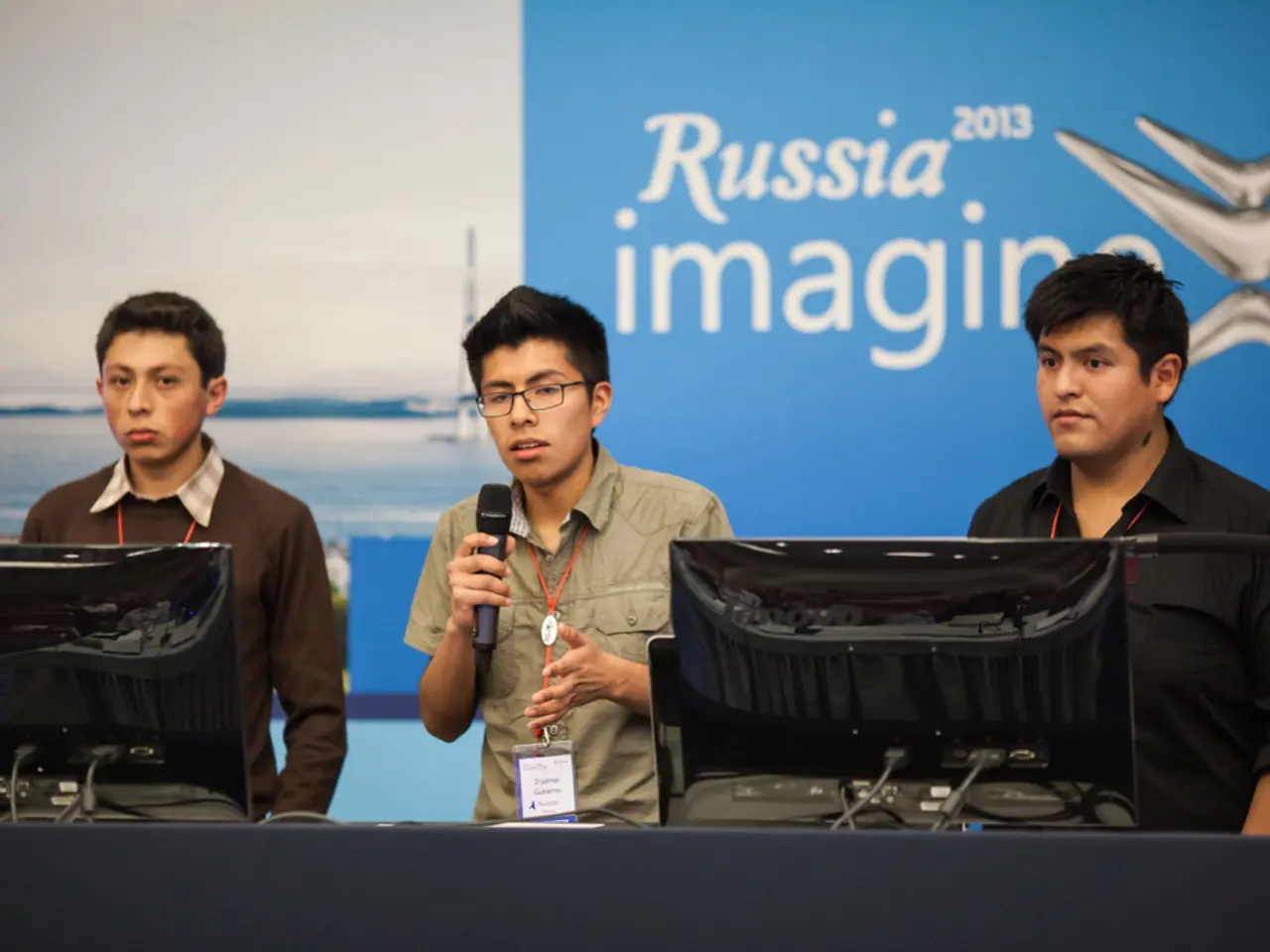Adoption portal in Russia lists Ukrainian children as commodities, according to non-governmental organization claims
In a chilling development, credible reports have emerged that Russian authorities in Russia-controlled areas of Ukraine have published an online database resembling an e-commerce store, offering profiles of Ukrainian children for adoption. This catalog, published by the Russian-installed Education Ministry in the Luhansk region, includes the names, photos, and descriptions of approximately 294 Ukrainian children under 17, with filters such as gender, age, eye and hair color, and sibling status[1][2][3][4][5].
Ukrainian NGOs and officials have condemned this practice as "state-sponsored child trafficking" rather than legitimate adoption. They argue that the systematic practice involves children being forcibly deported, stripped of their Ukrainian identity, and exposed to serious risks, including exploitation[1][2][3][4][5].
Many of the children in the catalog had Ukrainian citizenship before occupation, with some losing parents due to Russian attacks, while others were issued Russian ID to "legitimize" the abductions. The profiles include personal details akin to those used in commercial listings: photos, personality descriptions, and physical traits[1][2][3][4][5].
Save Ukraine, a Ukrainian aid organization that tracks wartime abductions and relocations, has estimated that tens of thousands of children have been abducted or deported by Russian forces since February 2022[1][2][3][4][5]. The database's layout has been criticized for making the pages look like an online slave market[1][2][3][4][5].
Mykola Kuleba, the leader of Save Ukraine, has accused Russia of using child trafficking methods[1][2][3][4][5]. Independent reporting last year identified Ukrainian children on Russian adoption portals, including the Financial Times finding several Ukrainian children listed on a Russian adoption website with their origins obscured[1][2][3][4][5].
Some of these children still have parents, while others have lost their families due to the occupying forces. In some cases, Russian documents have been issued to "legalize" the transfers of these children[1][2][3][4][5]. The practice is described as a clear violation of international law, effectively trafficking children under the guise of bureaucratic processes[1][2][3][4][5].
Authorities and independent investigators have not yet published a comprehensive public accounting of every case referenced by Save Ukraine. However, the organization's current findings follow on from those earlier cases and suggest that the practice has continued[1][2][3][4][5]. This catalog and related practices have drawn international condemnation as a modern form of child trafficking carried out by the Russian government[1][2][3][4][5].
References:
[1] The New York Times. (2022, October 6). Russia accused of trafficking Ukrainian children, in database. Retrieved from https://www.nytimes.com/2022/10/06/world/europe/ukraine-children-trafficking.html
[2] The Guardian. (2022, October 6). Russian-controlled regions in Ukraine publish online database of children for adoption. Retrieved from https://www.theguardian.com/world/2022/oct/06/russian-controlled-regions-ukraine-publish-online-database-of-children-for-adoption
[3] BBC News. (2022, October 6). Online database of Ukrainian children for adoption sparks outrage. Retrieved from https://www.bbc.com/news/world-europe-62848794
[4] CBS News. (2022, October 6). Online database of Ukrainian children for adoption sparks outrage. Retrieved from https://www.cbsnews.com/news/online-database-ukrainian-children-adoption-outrage/
[5] Financial Times. (2021, May 25). Russia accused of selling Ukrainian children for adoption. Retrieved from https://www.ft.com/content/1165851a-454d-44d6-a38c-51389586077d
- Following the revelation of a database resembling an e-commerce store, offering profiles of Ukrainian children for adoption in Russia-controlled areas of Ukraine, Turkish authorities have expressed concern about the political implications and potential violations of human rights in this situation.
- Amidst the general news and crime-and-justice sector, reports have surfaced that some of these children, originally from Turkiye, have been adopted by Russian families, raising questions about the legitimacy of these adoptions and the safety of the children involved.
- In response to the ongoing controversy about state-sponsored child trafficking in Russia, Istanbul-based NGOs have pledged to escalate their efforts in raising awareness and advocating for the rights of these children, seeking justice and hoping to reunite them with their families in Ukraine if possible.







